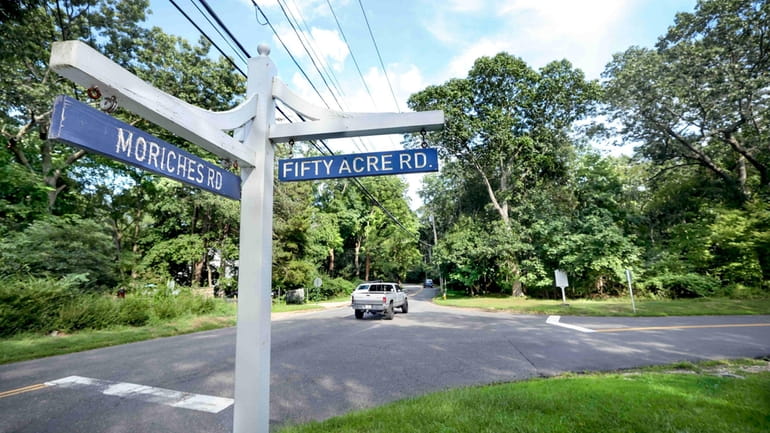EPA: Superfund site in Smithtown cleaned up

This Head of the Harbor area was part of a federal Superfund site that the U.S. Environmental Protection Agency says has been cleaned up after more than two decades of remediation following the discovery of groundwater contamination.
Credit: Newsday/John Paraskevas
All cleanup work at a site in Smithtown once listed as a federal Superfund site due to contaminated water has been finished after more than two decades, according to the U.S. Environmental Protection Agency.
The EPA's recent announcement means the agency found there is no longer a threat to people's health or the environment at what became known as the Smithtown Groundwater Contamination Superfund site.
“Contamination levels in the groundwater have fallen to a level that meets drinking water standards,” EPA Regional Administrator Lisa F. Garcia said in the announcement.
Dozens of drinking wells in parts of Nissequogue, Head of the Harbor and St. James were affected after the contamination was detected in the mid-1990s.
The groundwater was tainted with tetrachloroethylene, or PCE, a solvent used in dry cleaning and metal cleaning.
Despite an investigation to possible connections to 11 commercial facilities in the area, EPA officials said they were unable to pinpoint contamination sources.
Smithtown Supervisor Ed Wehrheim said Wednesday the town welcomes news of the site's remediation.
“We’re thrilled to learn that the area groundwater is no longer considered contaminated,” Wehrheim said. “That particular location has been connected to public water for some time now. However, we remain committed to working with our partners in government and the community at large to ensure our waterways, aquifer and surrounding ecosystem thrive for future generations to come.”
The problem came to light when testing by Suffolk County’s Department of Health Services between 1996 and 1998 found more than 30 area private wells had traces of volatile organic compounds such as PCE, according to the EPA.
PCE has been linked to liver damage and increased risk of cancer.
In 1997, the New York State Department of Environmental Conservation requested EPA help in funding alternative water supplies for residents with contaminated wells.
The EPA began providing them with bottled water and free water filters in 1998. In 1999, the location became a federal Superfund site.
By 2004, the EPA had designed a cleanup plan. In 2005, construction to connect affected residents to public water started. The federal agency paid, with a contribution from the state, according to an EPA spokesman.
From 2011 to 2020, the EPA did five-year reviews of groundwater sampling from wells to see if the cleanup was working.
EPA officials said such a review in 2020 found PCE levels had fallen below minimum state and federal drinking water standards.
The agency conducted two more rounds of groundwater sampling for monitoring wells in 2021 and 2022, the EPA spokesman said, before preparing a closeout report in January.
Nissequogue Mayor Richard Smith said in an interview that the contamination alarmed residents in his village when the problem first arose in the late 1990s.
“There were a number of families who had to stop using their water supply from their own wells,” Smith said.
While some village residents still use private wells, Smith said the village's connection to public water had a positive effect over time, including the installation of fire hydrants around 2000.
Smith said it's “a relief for a number of people" for the Superfund site cleanup to finally be finished.
One of those people is Nissequogue resident Robert Cantillo, 86, a retired FDNY firefighter. He said his family had a private well that was found in the 1990s to be contaminated.
Cantillo said he bought bottled water after that and pushed for the installation of public water that came later.
"It's good if the situation has been cleaned up," he said of the Superfund site closure. "Clean water is important."
